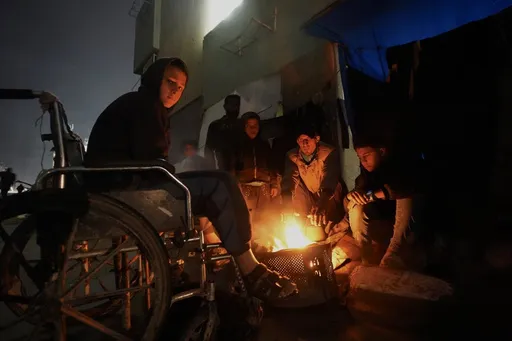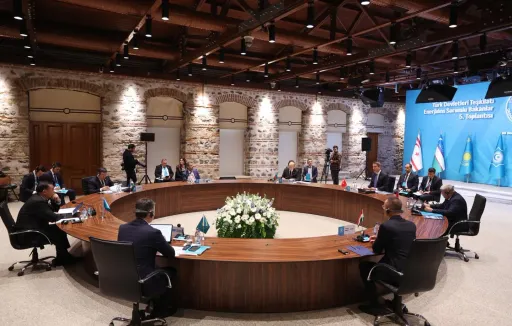By Abdulwasiu Hassan
Numbers, stark as they are, often represent a story more honestly than words. As Nigeria battles to extend the reach of universal basic education, the strength of its resolve lies in the insecurity bred by the evidence at hand.
Nigeria requires at least 20,000 schools to be able to absorb children who have not had any access to formal education.
That's a mind-boggling 907,769 classrooms to ensure that these kids don't remain unlettered, according to the head of Nigeria's Universal Basic Education Commission, Dr Hamid Bobboyi.
The data cited by Dr Bobboyi doesn't include the primary pain point: the number of Nigerian children currently out of school. A UNESCO report released in 2022 had pegged the figure at about 20 million children.
The number of out of school children has often been described as alarming by both officials and experts even as Nigeria is the most populous country in Africa with more 200 million people.
On World Teachers' Day, an event commemorating the anniversary of adopting the "1966 International Labour Organisation/UNESCO Recommendation on the Status of Teachers", the challenges for this West African country's teaching community couldn't be more imposing.
Ramp up facilities
The last national official estimate of the number of out-of-school children in Nigeria was around 10 million more than a decade ago.
The consensus is that the situation has worsened in recent years due to an increased population and insecurity in some parts of the country.
Experts say the only solution is to ramp up educational facilities and teachers to meet the rise in the number of children who are out of school.
Education for all
In 2004, the federal government enacted the Universal Basic Education Act, guaranteeing universal free and compulsory education for every child within the stipulated age for primary and junior secondary school.
The government's plan aimed to achieve universal education up to the junior secondary school level, for a start.
The law even prescribed punishment, ranging from fines to prison terms, if parents breached these provisions.
The legislation was backed by the formation of the Universal Basic Education Commission, which gets a 2% allocation from Nigeria's Consolidated Revenue Fund.
It uses the money to fund basic education projects in the 36 states of the country with the condition that each state will provide a share of the resources.
As of 2022, many states have billions of naira stuck with the commission, some have yet to make their contributions. The status quo deprives these states of the opportunity to reduce their number of out-of-school children.
According to some analysts, even if these states can access the money and spend every penny on primary education, the challenge of providing universal basic education can't be wished away.
"The problem has been building up over a long period and is now enormous. Even when the government is serious about solving it, you will see that the output is minimal. So much so that it is hardly noticeable," Danlami Bala Gwammaja, director of academic planning at Aminu Kano College for Legal and Islamic Studies, tells TRT Afrika.
Enforcement
One of the problems regarding the Universal Basic Education Act that experts highlight is the need for a full explanation of how sanctions will be applied to those who breach the law.
"From 2004 to date, I haven't heard of any parent being taken to court or penalised for not sending a child to school," says Dr Dalhatu Jumare of Ahmadu Bello University, Zaria.
He also said the law is silent about many things related to how sanctions can be applied to those who breach the provisions.
"Is it the parent who will report himself for not sending his child to school, or will the community report the parent? Is the onus on teachers to do this, or will children have to report their parents for not sending them to school?" says Dr Jumare.
Another problem being flagged by experts concerns the accountability of various tiers of the government vis-a-vis the implementation of policy decisions.
"There is an implementation gap that is peculiar to Africans, and Nigeria in particular. When it comes to implementation, this nonchalant attitude of not implementing policies to the letter also affects outcomes," Dr Jumare tells TRT Afrika.
Parents' mindset
According to analysts, parents who have little education or have yet to directly benefit from the elementary education they have had tend to place little value in enrolling their wards in school.
"Most people in the rural areas are poor and depend on their children for some of their earnings because they send them out for hawking especially girls," says Danlami.
A conditional cash-transfer programme linked to enrollment of girls was launched in some states like Kano in northern Nigeria about ten years ago to stop the practice of pulling kids out of school with little impact.
With the rising cost of living and high poverty rate, analysts believe it will become increasingly difficult for parents to pay for their education.
The way out
One school of thought is that the federal government needs to take the bull by the horns to ensure full implementation of universal primary education.
Experts believe more recruitment and training of teachers as well as improving their working conditions and facilities are crucial in addressing the educational problem.
"If the government can shoulder the burden of compensating property owners whose buildings need to make way for roads, it has no excuse not to do the same where schools are needed, or where schools require expansion," says Dr Jumare.
Experts also believe that parents and other citizens must support the government's effort by providing feedback on implementing free primary education and reporting breaches of the relevant law.
























